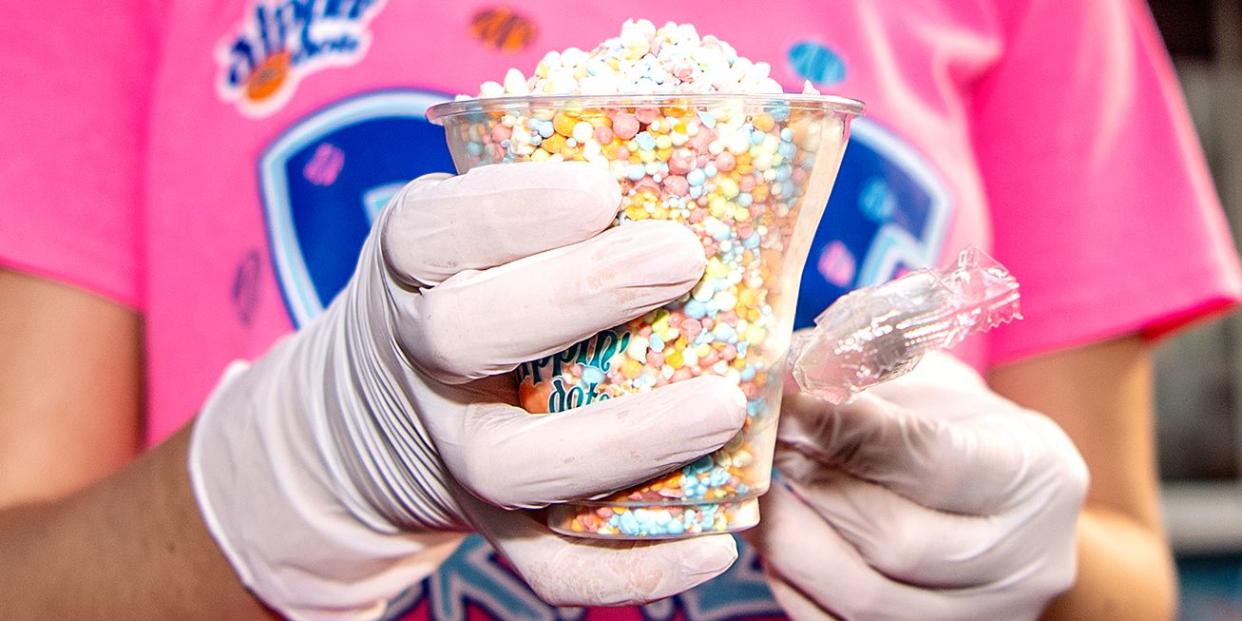Dippin' Dots Could Be Key To Learning More About COVID-19 Vaccine Distribution And Storage

Since most of us are not traveling to places like theme parks and movie theaters this year, you probably haven't given a ton of thought to the good old ice cream of the future, Dippin' Dots. But it turns out the space-age treat could become extremely important as some experts are looking at the way the treat is transported in order to come up with some solutions and tactics for storing COVID-19 vaccines safely.
Dippin' Dots have to be stored at -49 degrees Fahrenheit if they are to keep their iconic beaded shaped, which is a similarly cold temperature to the Pfizer and BioNTech COVID vaccine, which has to be stored at -94 degrees Fahrenheit and the Moderna vaccine, which has to be stored at -4 degrees Fahrenheit, according to Popular Science. For reference, classic ice cream is typically stored at just around 0 degrees Fahrenheit.
Dippin' Dots currently relies on something called a cold chain to maintain its integrity, which PopSci describes as "an infrastructure that standardizes temperature throughout every step of shipping and delivery." To retain vaccine safety, companies will have to use a similar process to ship doses of the shots, and they'll also likely rely on dry ice to keep them cold in transport, just as Dippin’ Dots typically does, as Chief Development Officer Stan Jones said. He told The TODAY Show that people in the medical community have reached out to learn more about their distribution chain.
"There has been a lot of interest in our logistics chain, you know, our handling of dry ice and shipping the products on dry ice," Jones said: "We've done it for 32 years, so it's not a new thing, and it's very doable.
Once they arrive, they'll also have to be kept super cold in storage, much like Dippin' Dots. Some pharmacies and hospitals have even reached out to the company inquiring about renting some of its equipment, Jones told PopSci. But that kind of short-term lease could present an issue.
“The problem with that is, those freezers are special duty, and once you put vaccines in them, you really don’t want to go back to putting food products in them," he explained.
Read the full article from PopSci to learn more.
You Might Also Like

